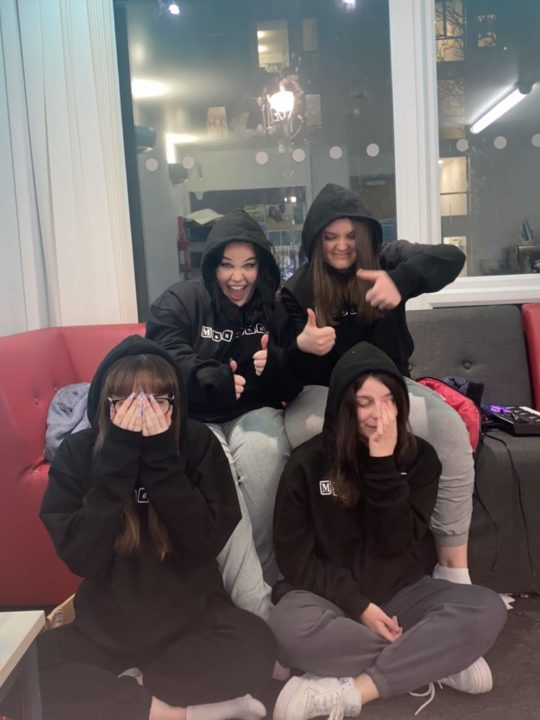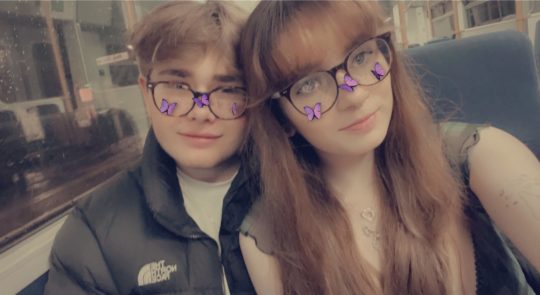
My experience as an autistic student at Lancaster University
Autism is one of my biggest strengths, but it’s also an overwhelming insecurity for me
This week is World Autism Acceptance Week, which aims to help break down the stigma surrounding autism, help more people understand autism, and educate people on how autism affects people in different ways. Autism Spectrum Disorder is a lifelong neurological condition that is estimated to affect around 700,000 people in the UK alone.
Therefore, to help raise awareness and understanding, here is my experience as an autistic student at Lancaster University.
We are still not where we need to be with autism acceptance
Autism acceptance has come a long way, but we are still not where we need to be. I’ve been told more times than I can count that I don’t “look autistic”, but that’s because there isn’t a look for autism. Every autistic person is unique and is affected by autism in a completely different way – we aren’t all boys, we don’t all like maths and we aren’t all geniuses like Sheldon Cooper. These stereotypes need to be broken down and eradicated.
High/low functioning labels are harmful and highly inaccurate
These labels are used by non-autistics to label how well they perceive the person to be functioning in society. Both labels are very harmful to the people that they are assigned to – “low-functioning” is normally given to someone who is unable to communicate verbally which completely dismisses the fact that they may be able to communicate in a less “conventional” way, and gives off the impression that they have nothing to say and their opinions matter less all because they can’t verbally speak.
As someone who is often referred to as “high-functioning”, this is also pretty harmful too as my struggles are seen as “lesser” than other autistic people, and they are not taken seriously due to me visibly being able to function like everyone else. These labels do not recognise fluctuation and they are way too black and white, failing to take into consideration the fact that every autistic person struggles in different areas.

Change is super hard and I love having a routine to follow
The world is very unpredictable and confusing and I like to have a strict routine to follow to curb my anxieties and keep change to a minimum. I know coming to university is huge for everyone and I’d never belittle the anxiety faced by anyone, but it was immense for me as an autistic person. It was such a drastic, overwhelming change to my life being in a brand new city, and there is never-ending change at uni which I am still learning to cope with.
Things like constantly changing lecturers and having to move house every year are highly anxiety-provoking and pretty hard to handle, but I am slowly learning ways to combat my anxiety around all of this change. The strikes were particularly hard for me as I went from having a routine of lectures, to having nothing which left me in a state of turmoil and panic, not knowing what to do with all of my time. By the end of Lent Term, I had gotten somewhat used to the change in lectures during these periods but nonetheless, it was still pretty hard to deal with.
I am very literal and logical and this can be an issue
My brain works in a very literal and logical way and I take things said to me very much at face value. This can mean that when assessments and assignments are explained to me, I very often have questions that others view as “stupid” or “obvious”, but that can make tasks so much clearer in my head. I have had several experiences since coming to uni of lecturers who will refuse to explain anything further as so not to give me “special treatment”, which is understandable but this can be a huge barrier for many neurodiverse students who need that little bit of extra support.
Masking is such a big thing that isn’t spoken about or understood
Masking is my survival mechanism and has been since I was little. To put it simply, masking is when an autistic person learns and performs neurotypical behaviours, and suppresses their autistic traits, in order to fit in with those around them. It is normally unconscious but it is very costly for autistic people – it can lead to depression, anxiety, shutdowns, meltdowns, burnouts, loss of identity and so much more. Luckily, I have some amazing friends at uni who support me and allow me to feel comfortable to unmask around them, but I still feel I have to mask whenever I leave the comfort of my flat which can be very draining and exhausting.

Women do have autism, and it is chronically undiagnosed in women
There is such an overwhelming misconception that autism only affects boys and this is not true at all. Boys are three times more likely to be diagnosed with autism due to the fact that autism manifests itself differently in men and women, and current diagnostic procedures are based heavily around the manifestation in men so autism in women is less noticed and diagnosed. As well as this, autistic women are more likely to be diagnosed later on in their life compared to their male counterparts, and the diagnosis process is much longer.
For me personally, I was 16 when my autism was diagnosed and while my diagnosis was a relief as my life finally made sense, it did leave me thinking – would my life be better if I had been diagnosed earlier and had access to the correct support at a young age?
I love being autistic but there is so much change needed in society
Like I said, autism is one of my strengths and I absolutely love being autistic. I’m a very understanding and accepting person as I know what it’s like to be ridiculed and excluded, and I’m very passionate about things that matter to me. I love having my special, intense interests and I love the way that I see the world differently to everyone else. Autism is my way of life and I don’t know any different – so much of my energy and strength goes into trying to navigate my way around a world that is shaped around neurotypical people.
If you are autistic, just know – there is nothing wrong with having autism. You are amazing and unique and you can find your place in this scary and confusing world. It is possible to be yourself, get the support you need to live independently, and have a successful future and life. There is a lot of change needed in society for neurodiverse people to feel comfortable and accepted into society; with these changes, we will be able to thrive and grow to our full extent without suppressing who we truly are.

For information on accessing support for autism, click here.









































